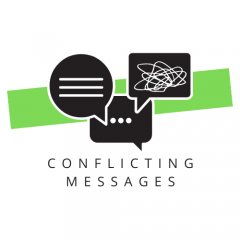So you’re considering making a birth plan but everyone tells you not to bother. They say it’s a waste of time. They say you can’t plan birth so why bother making a plan at all. They say that they wrote one but nobody at the hospital paid attention to it. They say so many negative things about birth plans that you’re thinking you won’t create one after all.
Well I disagree entirely. A properly written plan can be invaluable in many ways:
– it enables you to think about and gather information on decisions ahead of time. Decisions that you might need to make quickly and during a time where you are not thinking very clearly. Having your wishes ready in advance means you can simply refer to your plan.
– it can allow you to feel in control of the process thus more relaxed and comfortable.
– it can help you come away from a difficult birth with a more positive outlook on what took place.
If birth plans are as worthwhile as I claim them to be, why do so many people hold them in such distain?
Well, I think there are a few reasons.
Firstly, and most often, women do not understand the purpose of a birth plan. At face value, it sounds like you would write down how you would like your birth to play out; however, what it really should be is an opportunity to highlight aspects of your birth that are important to you, and to make decisions about all possible outcomes. When you do not know a lot about birth, it is useful to find a template. Many women don’t even know what decisions they have to make (do you want the baby washed by a nurse, by you , or left with the vernix on because it’s good for their skin?) Or, for example, you may want a natural birth but you would also think about decisions related to a c-section such as the possibility of delayed cord cutting and immediate skin to skin. Your birth plan is not a closed plan, but one where you accommodate all possibilities and make your wishes known in case of those eventualities. And also keep in mind, this does not mean your plan has to be 20 pages long. Perhaps there are only a few items that are of urgent importance to you. This is your plan, make it what you want it to be.
The next issue is that women make plans that are unrealistic for the situation and are then devastated that their birth and birth plan do not match in any way. For example, your birth plan states that you want no unnecessary interventions, but you have selected an OB who often uses interventions and has a high rate of c-sections amongst his patients. He does not let women go more than 2 days past their due date, and prefers to induce labour rather than letting women go into labour naturally. The likelihood of your intervention-less birth happening is pretty low and you either need to have a frank talk with your OB, switch doctors, or adjust your expectations and your plan.
The third issue is also very common, a plan that only covers the most ideal birth. While I do advocate that women think positively about their upcoming birth, I do not agree with living in denial about what may happen. Believe in yourself, believe in your body’s inherent abilities to give birth, but also plan for what you’d like to occur if life takes a different course. Knowing you’ve made these hard decisions ahead of time will take a weight off of your shoulders, and may prove valuable later. If all goes smoothly then hurray for you and if not then you can still take joy in the aspects you were able to adhere to such as having immediate skin-to-skin or your partner getting to cut the cord. Those small victories do mean something, and it’s worth thinking about them and recording your wishes.
After you’ve had your baby, take a look at your plan again. What were you able to follow through on? Find the positives. Too many women see that events didn’t go as they had planned and simply decide the whole plan was a failure, but this is rarely true.
Yet another misconception is that birth plans are only for women who want a natural birth. Wrong. If you want an epidural and an episiotomy then that is still a decision about your birth and you have the right to make those choices. There are so many ways to have a baby. This is your chance to determine how you’d like to have yours.
Lastly, women who’ve had a traumatic first birth often assume all future ones will be the same. A previous c-section does not mean you will always have c-sections. Find out from your doctor or midwife why your first birth went in the direction it did, and what you can expect to be able to accomplish in future labour and deliveries. Going into a subsequent birth with a defeatist attitude is only going to make your chances for failure higher. Plan for a more positive version of birth, even if your options are limited. There are always ways you can take ownership over your birth.
To sum it all up- Write a Birth Plan! Find a template, go through the options, make note of those that pertain to you, and make sure you give a copy to your OB (midwife), as well as keeping one in your hospital bag. Making decisions while you have the time and wherewithal to make them is never a bad idea 😉
Best of luck to all of you with an upcoming birth!

